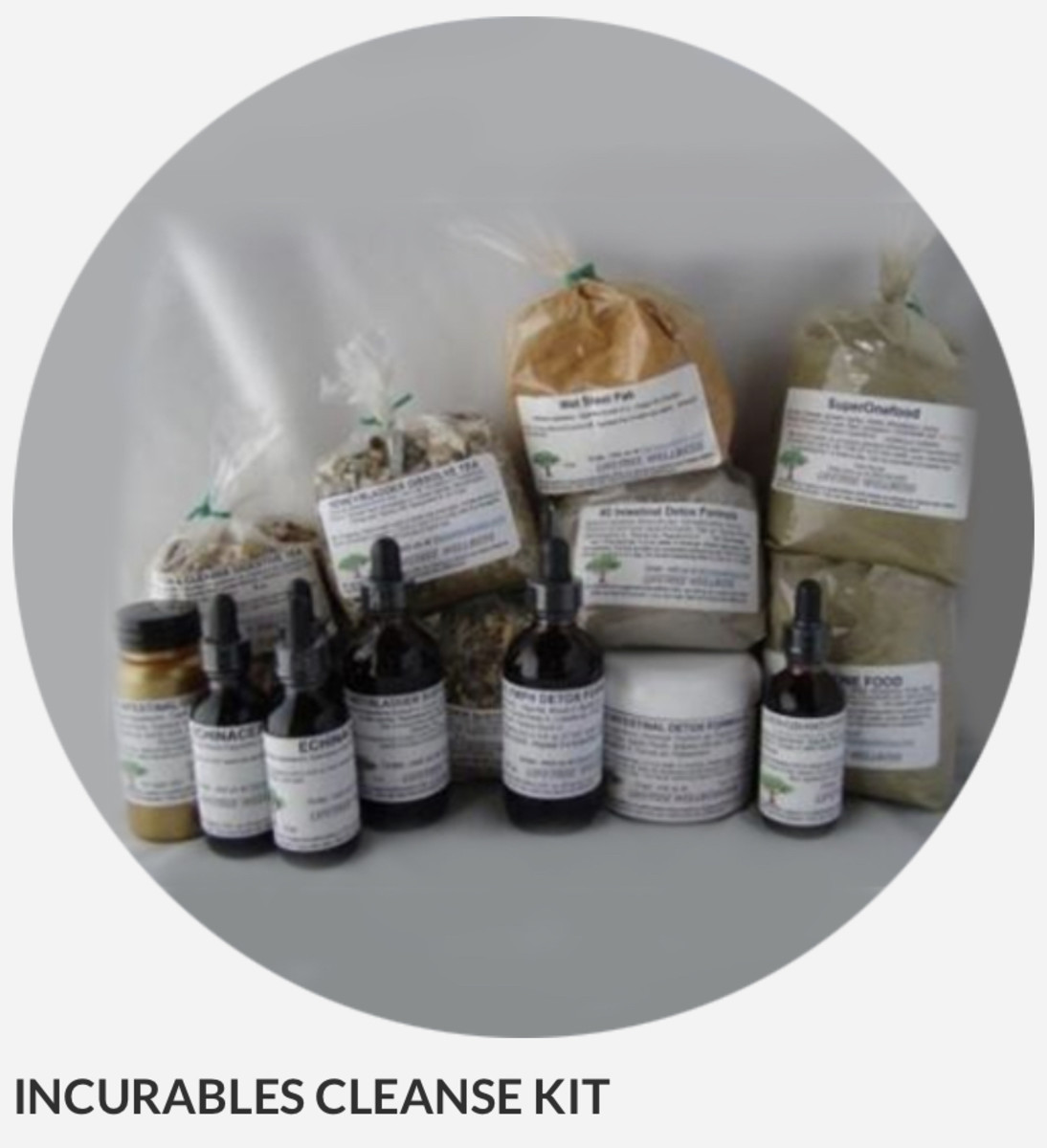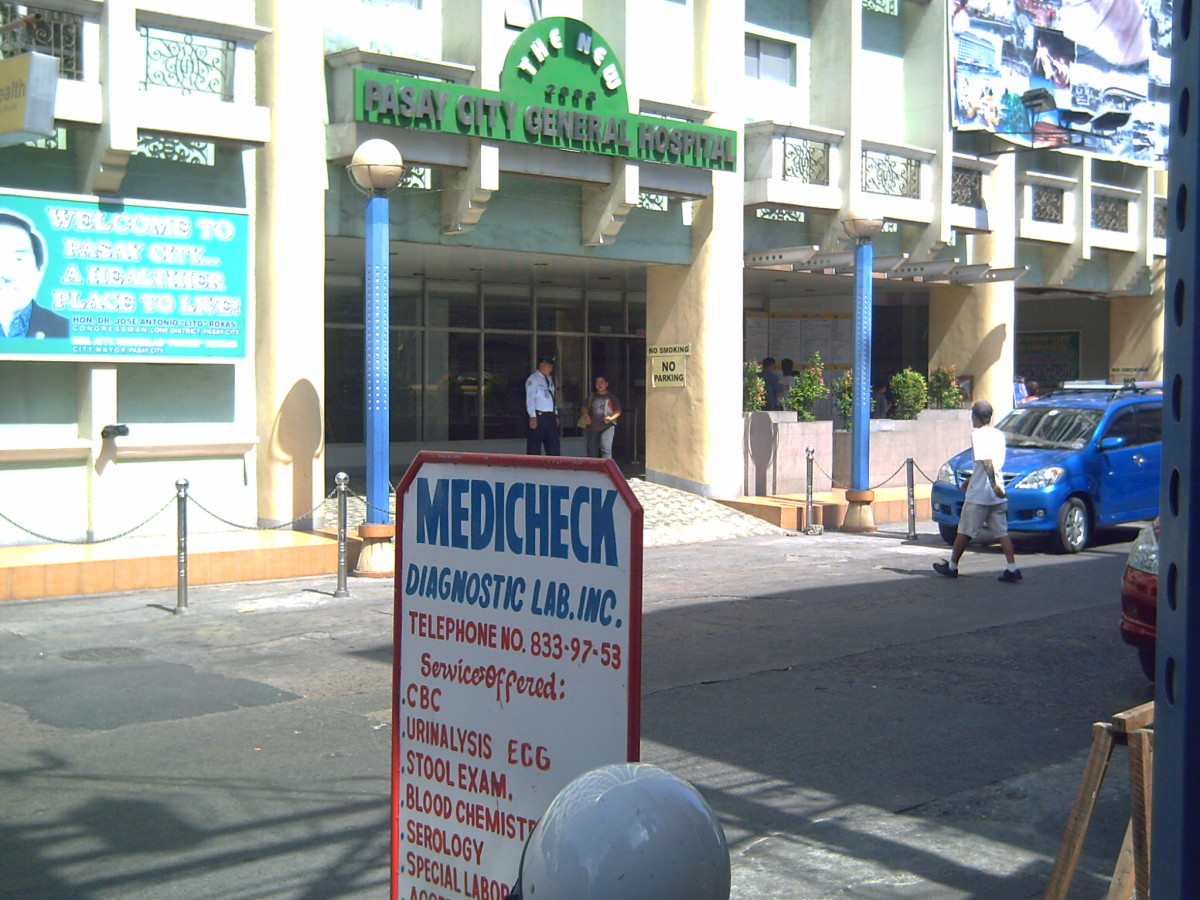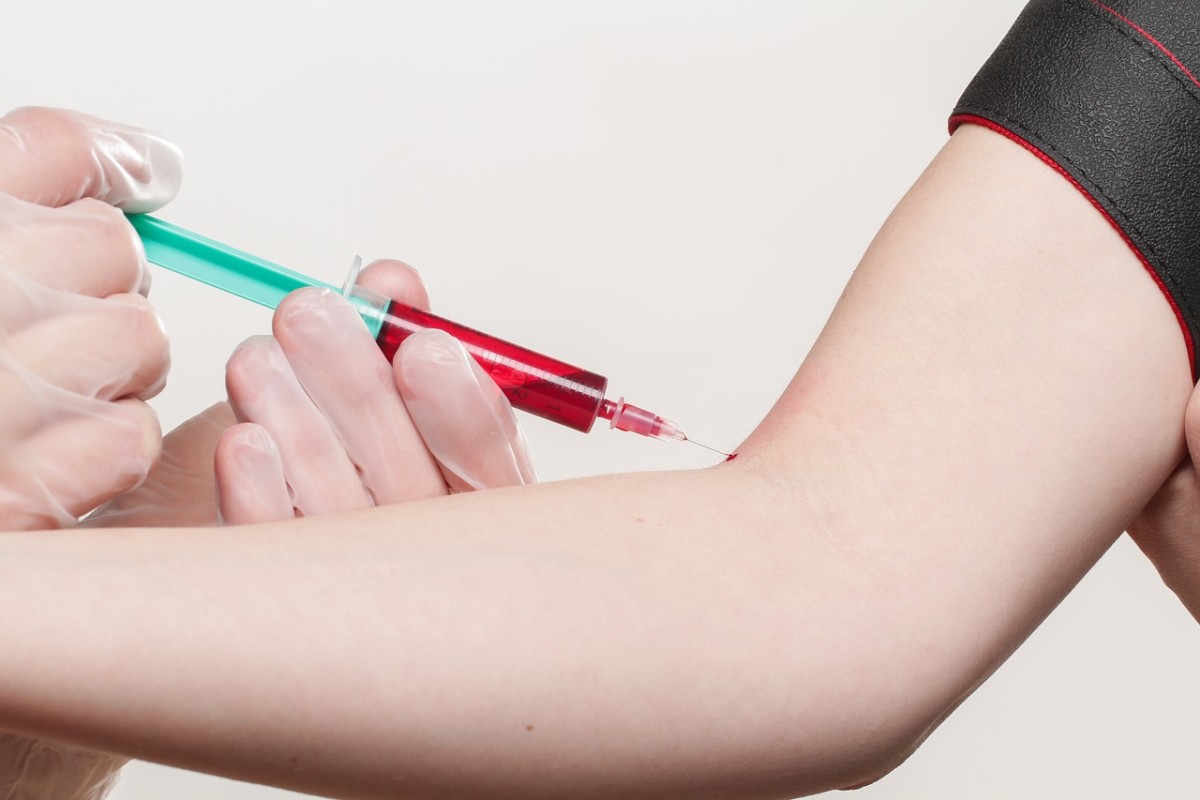Tips to Get the Most From Your Doctor Visits
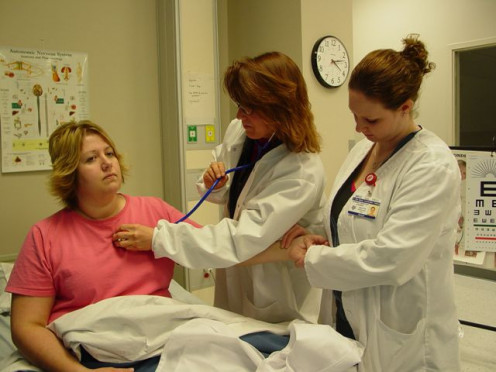
Your Doctor Works for You
Think of your healthcare professional as an independent contractor; a supplier of medical advice, prescription medications and other tests or procedures.
It is extremely important that you work directly with your “contractor.” Just as you would be actively involved on a consistent basis with a contractor hired to build you a new home, you must be an active participant every step of the way with the care of your health as well.
Keep a Personal Medical Journal
You are your own best advocate. Keeping a record of your health care can really come in handy. Depending on your health issues, you may wish to document things on a weekly or even daily basis.
- List your medical history. This may be important to recall at future appointments.
- Document the dates and outcomes of doctor visits, immunizations, procedures, hospitalizations and surgeries.
- Keep a current list of your medications, the purpose and dosages.
- Keep an ongoing record of advice and suggestions from your doctor such as a special diet.
- Jot down questions you’d like to talk to your doctor about.
Maintaining a personal medical journal for yourself is your way of taking care of yourself and will prove helpful to you and your doctors. It will also prove to be invaluable if you are switching doctors and health care providers.
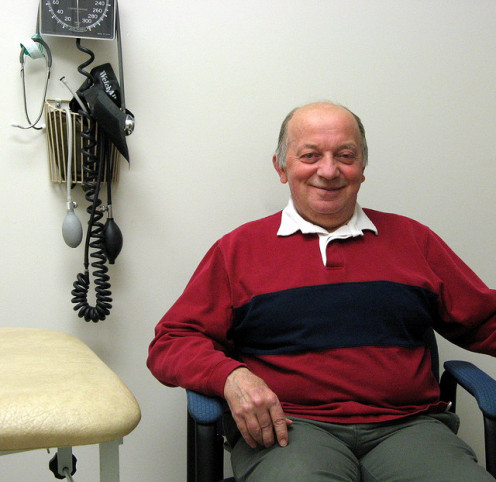
Make a List Prior to Every Doctor’s Appointment
Many people are list writers. It helps to keep us organized. We write shopping lists, to do lists, notes for a meeting with our boss or a list of work we want our mechanic to complete on our car. Why not make a list of things you want to speak to your doctor about at your next appointment.
It is normal to be nervous when visiting the doctor. Sometimes we have to wait a long time before we actually get called in to see the doctor. We get tired, bored and frustrated. We may be running late for another appointment and feel rushed.
Having a list of things to tell your doctor and/or ask your doctor is critical for making sure you receive the best care. Also take your personal medical journal with you. Don’t take the risk of forgetting to discuss something important to you. Most doctors would prefer that you come in with a detailed list. It’s a wise thing to do.
If you are the caretaker of a child or an elderly person, it is also wise to prepare a list for their appointments as well.
Example of a List for Your Next Doctor's Visit
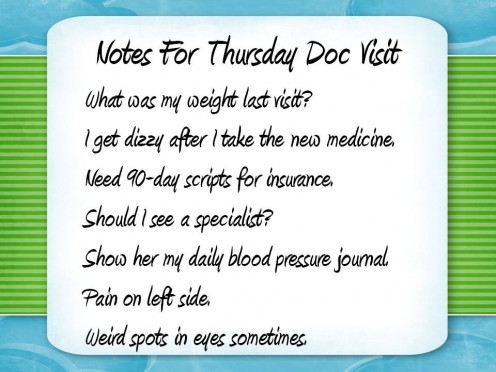
Know Your Medications
Regardless of whether or not you keep track of your medications in a personal medical journal, it’s important to always arrive at a doctor appointment with a current list that includes the dosages and purpose. If necessary, take the actual pill bottles with you. Be prepared to speak with your doctor about any medication complications or side effects.
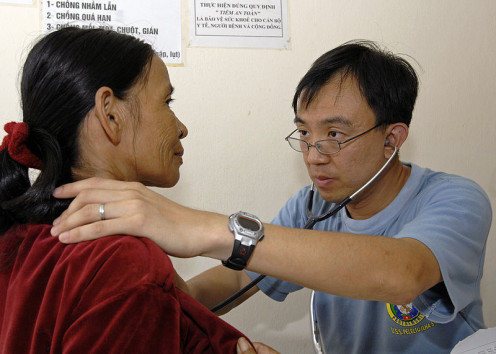
Listen ~ Focus ~ Pay Close Attention
Paying close attention to what your doctor is saying is extremely important. If you do not understand something, always ask for clarification. If necessary, request that information be written down by the doctor or nurse for you.
Do not think ahead about something else you also want to discuss. Stay in the moment. Remember, you already have a written list so you will not forget.
A Second Set of Hands and Ears
Arrange for a friend or family member to go with you to your doctor appointment if you need support. Having someone else there to guide you and to hear the same thing that you are hearing could be helpful to ensure that everything is understood correctly. They could also help by asking questions that you may not have thought of. If you are unable to have another person with you and you feel you may miss important information, consider taking a voice recorder with you.
Be Open and Honest
Let’s be frank. Your doctor cannot properly help you if you are not open and honest. Tell your doctor everything they need to know to give you the best care possible. Let them know if you are having difficulty following a specific treatment plan so that they can work with you to make changes.
Contact Your Doctor Anytime
Do not ever be afraid to contact your doctor, day or night if needed. If they are not in the office, they likely have an answering service that can get a message to them or they will contact the doctor that may be on call. Remember, they work for you. If the reason you are trying to reach your doctor is a life threatening emergency, immediately call 911.
Below you will find some fascinating statistics that you may be interested in.
Wishing you the best in getting the most out of your doctor visits.
This is Sharyn's Slant

U.S. Ambulatory Care Use and Physician Visit Statistics
Age Group
| Had Contact With a Health Care Professional
|
|---|---|
Adults
| 82.2%
|
Children
| 92.1%
|
Source: 2010 Statistics, National Center for Health Statistics

U.S. National Ambulatory Medical Care Survey Statistics
Total Number of Visits
| > > > > 956 Million
|
Number of Visits per 100 People
| > > > > 320.1
|
Percent of Visits to Primary Care Physician
| > > > > 60.5%
|
Most Frequent Principal Reason for Visit
| > > > > Medical Examination
|
Most Commonly Diagnosed Condition
| > > > > Essential Hypertension
|
Source: 2008 Statistics, National Center for Health Statistics

DermTV.com How to Get the Most From Your Doctor's Visit
Interested In Writing For HubPages?
Go to the SIGN IN PAGE to get started now!
Want To Follow Sharyn's Slant On HubPages
Please click HERE TO GO TO THE PROFILE PAGE. Then click on FOLLOW next to the profile picture.







